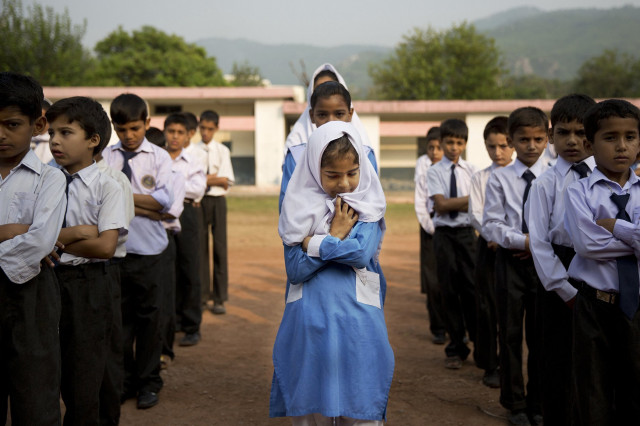Children with disabilities face discrimination and exclusion in their homes, schools and communities, at all stages of childhood. The challenges outlined in UNICEF's report highlight the urgent need for concerted efforts to address the systemic barriers that children with disabilities face in accessing inclusive, quality education.
Inclusive education plays a crucial role in achieving the broader Sustainable Development Goals (SDGs) by ensuring that every individual, regardless of their background or circumstances, has access to quality education.
Governments must enact and enforce policies that protect the rights of children with disabilities to access inclusive education. This includes ensuring that legislation is aligned with international human rights standards, such as the United Nations Convention on the Rights of Persons with Disabilities (CRPD), and actively implementing inclusive education policies at all levels.
In Pakistan, inclusive education faces various challenges, but there are also opportunities for improvement. Here are some key needs and areas for focus:
Policy and legislation: There is a need for comprehensive policies and legislation that explicitly promote and support inclusive education. Existing policies should be reviewed and revised to ensure alignment with international standards, such as the CRPD, and to address gaps in implementation.
Teacher training and professional development: Teachers require training and support to effectively implement inclusive education practices. This includes training on understanding diverse learning needs, adapting teaching methods, and creating inclusive classroom environments. Continuous professional development opportunities should be provided to teachers to enhance their skills and knowledge in this area.
Infrastructure and resources: Many schools in Pakistan lack the necessary infrastructure and resources to support inclusive education. This includes accessible school buildings, appropriate learning materials, assistive technologies, and trained support staff. Investments are needed to improve infrastructure and ensure that schools are equipped to accommodate students with diverse needs.
Community engagement and awareness: There is a need to raise awareness and promote acceptance of inclusive education within communities. This involves engaging parents, caregivers, community leaders, and other stakeholders in dialogue and advocacy efforts. Efforts should be made to challenge stigma and discrimination against children with disabilities and promote the benefits of inclusive education for all students.
Early childhood education: Early intervention and early childhood education are critical for addressing learning and developmental needs from an early age. There is a need to expand access to quality early childhood education programs that are inclusive and cater to the diverse needs of young children, including those with disabilities.
Data collection and monitoring: Reliable data is essential for planning, monitoring, and evaluating inclusive education initiatives. There is a need to improve data collection systems to accurately capture information on enrolment, attendance, achievement, and other relevant indicators for children with disabilities. This data can inform evidence-based decision-making and help track progress towards inclusive education goals.
Partnerships and collaboration: Collaboration between government agencies, civil society organisations, NGOs, and other stakeholders is essential for advancing inclusive education in Pakistan. Partnerships can help leverage resources, share expertise, and coordinate efforts to address the multifaceted challenges faced by children with disabilities in accessing quality education.
Addressing these needs requires a holistic and coordinated approach, with sustained commitment from government, civil society, and the international community. By prioritising inclusive education and investing in the necessary resources and support systems, Pakistan can work towards ensuring that all children, regardless of their abilities or backgrounds, have equal opportunities to learn and succeed.
Inclusive education is not only a fundamental human right but also a key enabler for achieving the broader goals of sustainable development. By ensuring that every individual has access to quality education, inclusive education helps to unlock opportunities, break down barriers, and create a more equitable and inclusive world for all.



COMMENTS (2)
Comments are moderated and generally will be posted if they are on-topic and not abusive.
For more information, please see our Comments FAQ